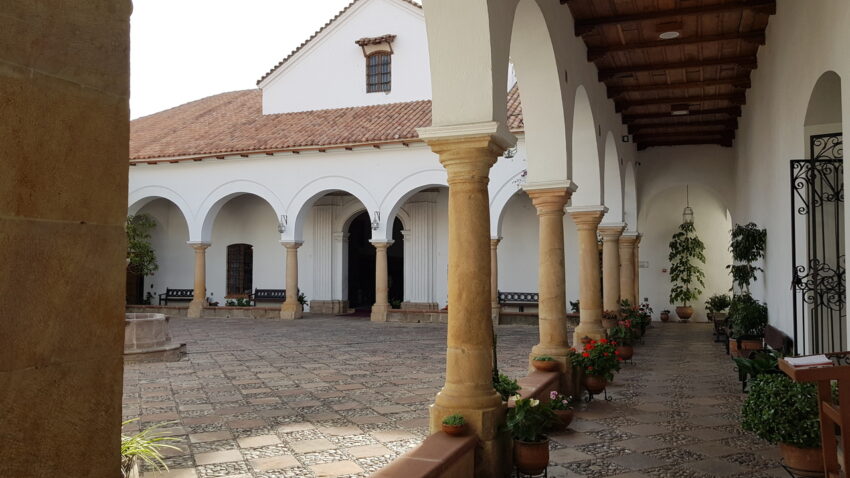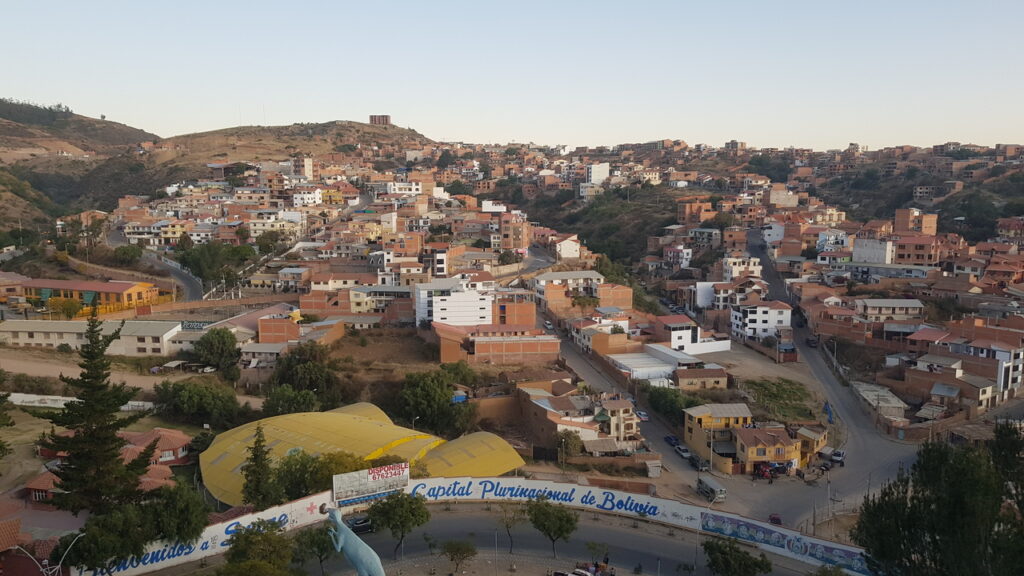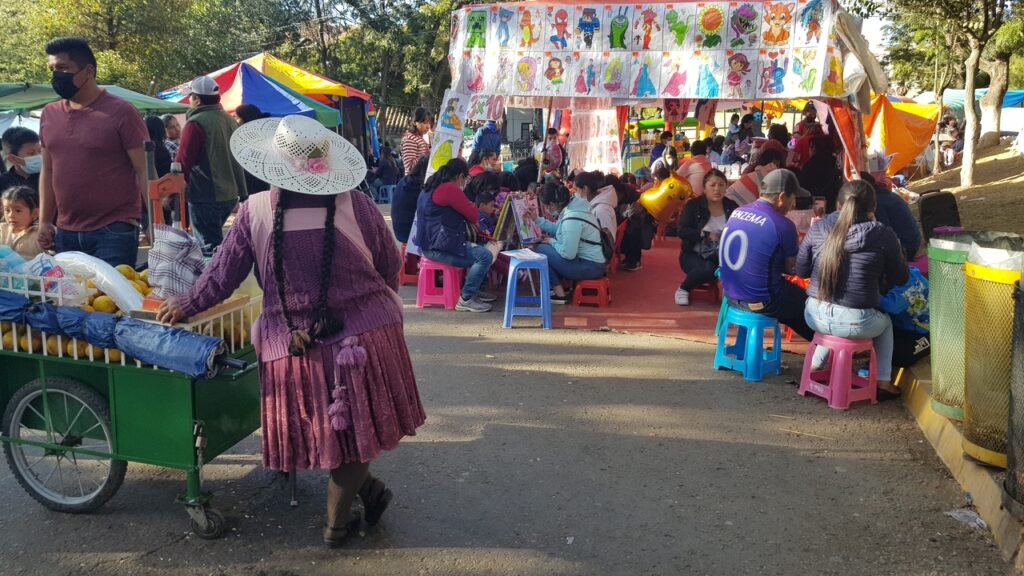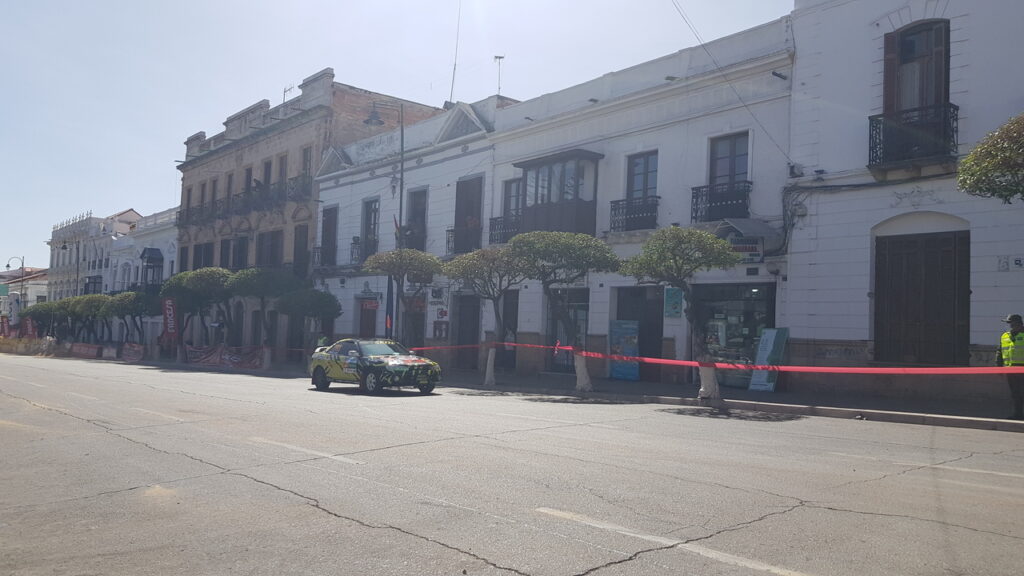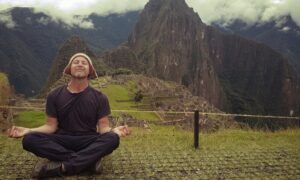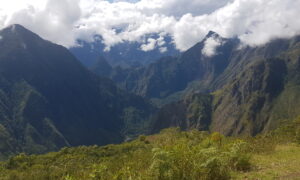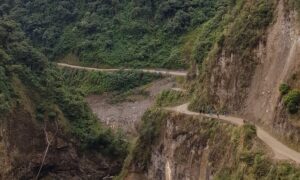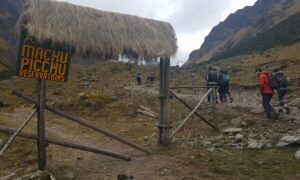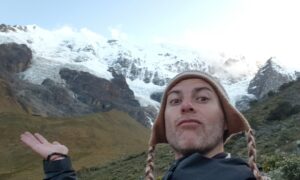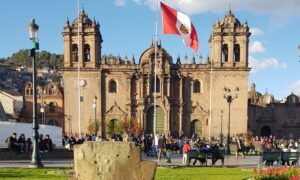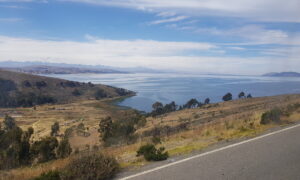Unsure about the best travel options from Potosi to Sucre, we consulted our hotel owner about the bus schedules. She mentioned that a private taxi for the four of us would only be slightly more expensive than taking the bus. The benefits of the taxi outweighed the little money we’d save by taking the bus. So, we ordered the taxi for 9 am sharp to Sucre.
The taxi car arrived covered in racing decals. We would soon find out the look of the car matched the driving style. While it wasn’t the most life threatening journey, we did get there substantially quicker than Google Maps expected us to.
We got dropped off in the centre of town, and I was immediately impressed. Sucre is a beauty—a perfectly preserved, Spanish-style town covered entirely in white architecture. We got dropped off at town square and walked through the beautiful streets to our hostel. I stayed in the same hostel as Jip, Tim, and Romain but because I hadn’t pre-booked, I was forced to move the next day. I was initially disappointed to leave my friends, but soon recognised it was for the best. I was planning to take a week of Spanish classes and it would have been difficult to do homework surrounded by people socialising and sightseeing. The next day packed up, said goodbye to Jip, Tim and Romain and moved to a nice homestay with a lovely family on the outskirts of town.

I was determined to learn Spanish and ready to focus all my effort towards this goal. In Latin America, more so than in certain parts of Asia and most of Europe, I felt the experience is diminished by not knowing the local language. People don’t visit Thailand or Bali expecting to know the local language, so tourism is mostly conducted in English. Spanish, however, is spoken by many people in Europe, and in almost every country in South/Central America, people speak it as well. Therefore, the tourism sector is a lot less reliant on English.
I left no time for idleness, and I jumped right into my lesson on the first day of my arrival. The first day I was absolutely useless, and even though I knew some basic words already, identifying them in conversation with a native speaker is a whole other story altogether. Nevertheless, progress was made even on the first day. I was forced to only speak Spanish, and even if I didn’t know many words, I had to use what I have and ask about what I didn’t. I rarely spoke English unless complex use cases had to be explained. This forced me to speak substantially more than at any other time on my Latin America trip so far. This is the key, repetition and immersion! There’s a lot more brain processes involved when merely recognising written words vs recalling and articulating them in a sentence in real time. If ever your brain could overheat, it would definitely be trying to speak a new language by recalling word by word.
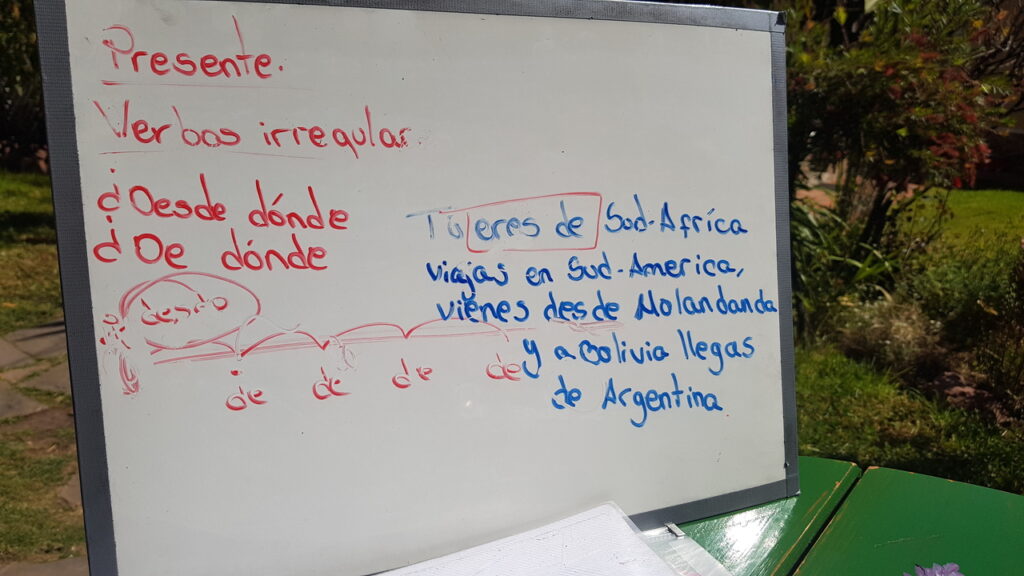
We had 3-hour lessons every day for 5 days. I didn’t get to see much of Sucre in between lessons as I also had homework that took 2-3 hours to complete. It was difficult to get ahead of the lessons. I felt the teaching style to be more academic than to get me comprehending and speaking. My homework mostly involved going through various verb conjugation exercises, something easily learned on my own.
To illustrate my point above, here’s a quick Spanish lesson: In Spanish, the verb changes depending on the person(s) doing it. “Hablar” is a base form that means “to speak”. Hablo is “I speak”. Hablas is “you speak”, Hablamos is “we speak”. This formula applies to most verbs with a few exceptions. Knowing how to apply the formula for a list of verbs in a written exercise doesn’t have nearly the effectiveness of transitioning between the verbs conjugations and subjects in real-world dialogs. In written exercises, one would memorise the conjugations in sequence and not random recall. Eg. you’d remember the base form, then just transform it sequentially for “I speak”, “you speak”, “we speak”. In English this is simple, because the verb stays the same. You just have to recognise the subject. In Spanish the words keep changing depending on the subject, making the parsing quite difficult to do in real time. There’s almost a double translation that needs to be done in your head. One is to translate to the base verb and then to translate again to find the subject. It doesn’t help that the accent is also different for “Hablar” and “Hablo” and therefore sounds quite different.
This is not to say Spanish is particularly difficult. It’s actually quite easy because of the consistency and being very phonetic. I can only imagine what a nightmare it must be to learn English with all its inconsistencies.
Even though I had mixed feelings about the teaching style, I was totally happy about the decision to take lessons. Attending classes and consistently speaking on a daily basis is significantly more effective than listening to an audiobook or spending a few hours on Duolingo. After only five days, I could speak enough Spanish to manage most day-to-day tourist tasks.
On the weekend that I left, there was a car race right in the middle of the town, in the streets of Sucre. All week I’ve been hearing very loud cars early in the morning. I didn’t know it was racing cars and just thought it’s very inconsiderate residents with an over-the-top, obnoxiously loud exhaust leaving for work or just driving up and down the streets. I was a bit too harsh to jump to conclusions, though it was not obvious to suspect a racing event through the narrow streets of Sucre.
I watched the race on the day that I had to leave. It was quite a unique experience seeing the cars whiz by through the picturesque streets. Everyone was enjoying the spectacle, and it was quite the event with a large turnout.
The race finished towards the afternoon, the winners were announced, and after the celebrations, I had to be on my way. I was on my way to La Paz, the highest capital in the world.

